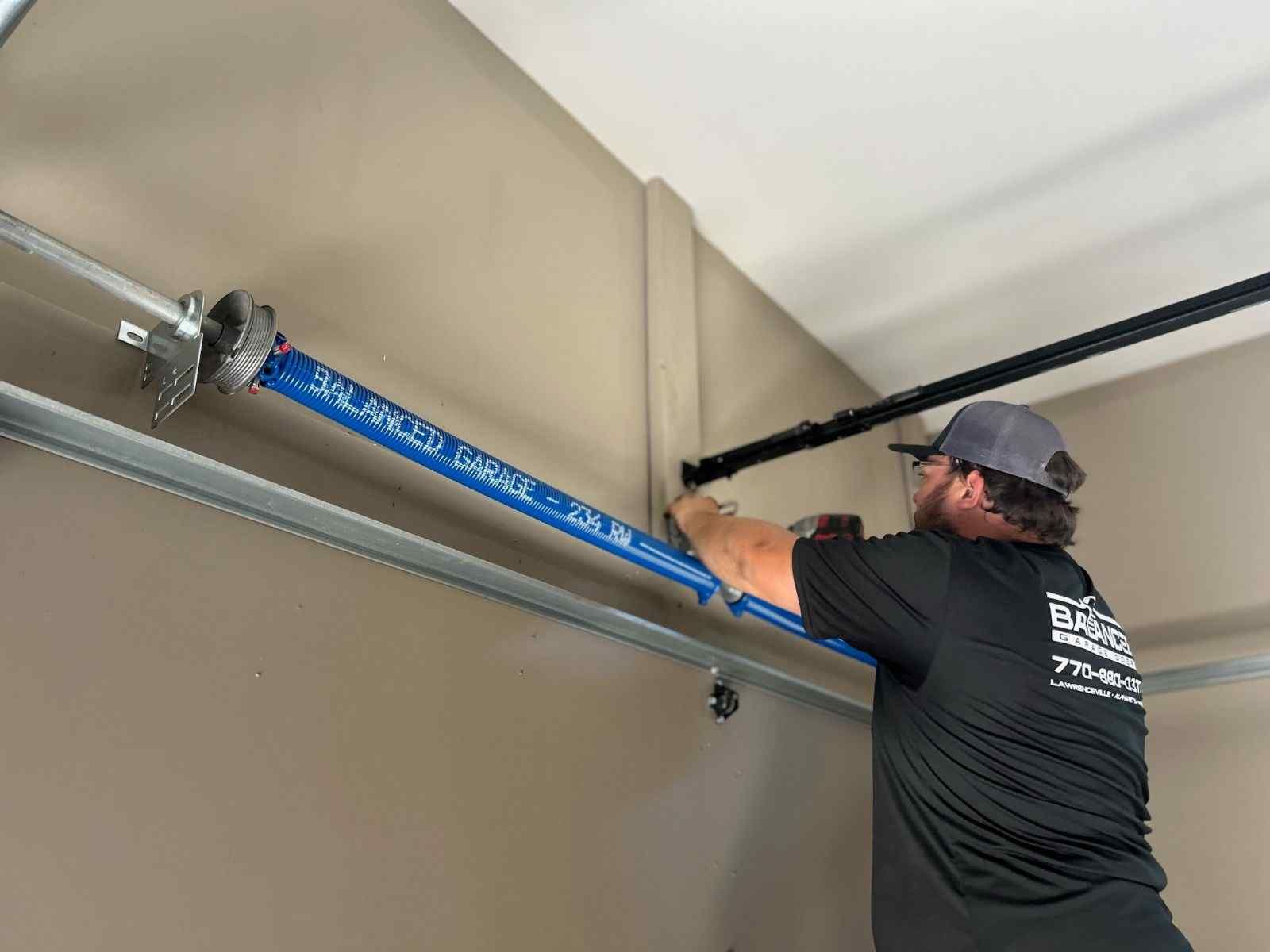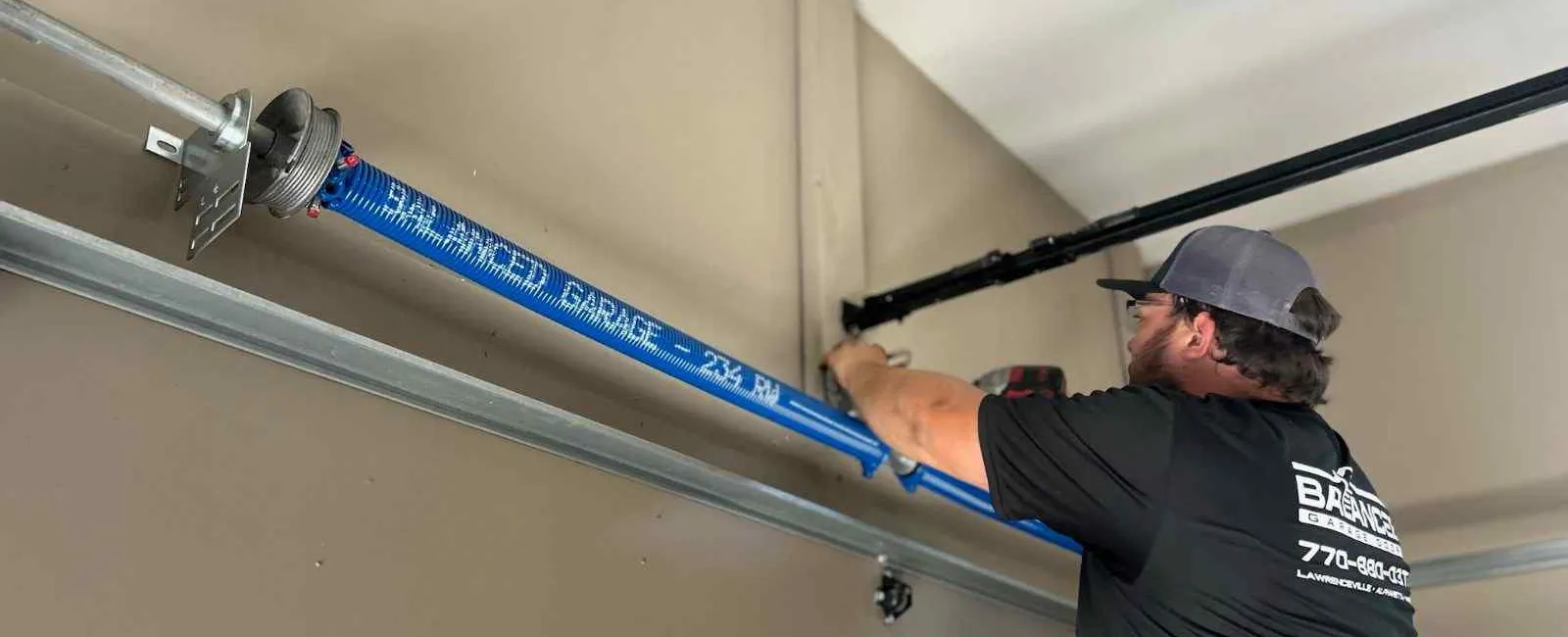Few things are more frustrating than a garage door opener that suddenly stops working at the worst possible moment. Garage door remote problems can bring your entire day to a halt and leave you stuck when you least expect it.

The ease and convenience of garage door openers are often taken for granted — until they stop working. They offer daily convenience, security, and comfort, especially during harsh weather. So when the system fails, it can feel like a major disruption to your daily routine.
At Balanced Garage Doors, we understand how inconvenient this can be, and we're here to help. From remote control issues to power failures or faulty components, there are a number of reasons why your garage door opener stopped working. The good news? Most problems have straightforward solutions.
In this guide, we'll walk you through the most common causes and what steps you can take right now to get your door moving again. And if your garage door opener does not work and a DIY fix still doesn't solve the issue, our team of technicians are just a call away for professional garage door opener repair or replacement.
The Most Common Issue and Fix For Garage Door Openers
If your garage door opener suddenly stops responding, the most likely issue is because of dead or weak batteries in the remote control. If your remote is no longer triggering the door, the first step is to replace the batteries, especially if it's been more than a year since you last did so.
Other quick fixes to check when your garage door opener does not work:
- Dirty or smudged sensors: Clean the optical sensors on your remote or wall panel. Dust or grime can interfere with the signal.
- Remote-to-opener sync: Over time, your garage door remote or keypad can lose its connection to the opener due to power outages, signal interference, or internal glitches. In these cases, a hard reset followed by reprogramming your garage door opener can usually restore functionality. Because each opener brand has its own specific reset procedure, be sure to check for model-specific instructions to complete the re-sync process accurately.
- Unplugged garage door opener: With continuous garage use, vibrations or movement from the garage may loosen the plug and it's also easy to accidentally unplug it when moving stored items or tools. Locate the ceiling outlet where the motor is plugged in and ensure the cord is securely connected.
If your opener is working inconsistently (opening sometimes, but not always) it's usually a sign that the remote's batteries are fading.
On remotes with LED indicators, a non-functioning light when pressing the button usually means the battery is dead. For older remotes without an indicator, try opening the door using the wall control. If that works, a battery swap should solve the issue.
Keep in mind that while battery or signal problems are the most common culprits for faulty openers, persistent issues may point to a failing logic board inside the opener. If basic fixes don't work, it might be time to call a professional to repair your garage door opener system.
Other Overlooked Issues for Garage Door Openers
If you've ruled out dead batteries and remote syncing issues but your garage door opener still isn't working consistently, other underlying factors may be to blame. Here are a few other commonly overlooked issues for garage door remote problems:
Radio frequency interference
Radio frequency (RF) interference can disrupt the communication between your garage door remote and the opener, preventing the signal from reaching its destination. If you've recently installed other nearby electronic devices or wireless systems like home security alarms, motion detectors, gaming consoles, Wi-Fi routers or baby monitors, radio frequency interference may be the culprit.
Tracking down the exact source of the disruption can be tricky, so it's best to call a professional garage technician. They can test for interference, isolate the problem, and restore proper function to your garage door system.
Dry or malfunctioning garage door rollers
If your garage door closes but struggles to open (especially during cold weather) your rollers may be to blame. In winter, rollers can stiffen or stick, causing the door to move slowly or stop altogether. Damaged or rusted rollers can also create excess friction, which may signal your opener to halt the door's movement as a safety precaution.
If your rollers have signs of rust, wear, or binding, apply a silicone-based or white lithium lubricant to help them glide smoothly along the tracks and avoid grease-based products that attract dirt and grime. If the rollers are cracked, rusted, or worn flat, replacement is the best solution.
Regular maintenance of your garage door rollers can prevent sticking, reduce noise, and ensure smooth, reliable operation all year long.
Inspect the circuit breaker or GFCI outlet
If the motor is plugged in but still unresponsive, the power supply may be disrupted. Check the circuit breaker, fuse, or GFCI outlet connected to your garage door opener. If any have tripped or blown, reset or replace them.
If power repeatedly cuts out, this could indicate a short circuit — either in the wiring or within the opener itself — and should be evaluated by a professional.
Burned-out garage door opener motor
If none of the above solutions restore function and both the opener and garage door doesn't respond at all, the motor may have failed.
Garage door opener motors can burn out over time, especially under heavy use or strain from an unbalanced door. You can replace the motor yourself if you're comfortable with electrical work, but many homeowners choose to call a technician for safe, expert installation.
Get Expert Help Fixing Your Garage Door Opener
Don't let a faulty garage door opener disrupt your day. Whether it's a simple fix or a full replacement, our team at Balanced Garage Doors is ready to help. Schedule your service today and restore smooth, reliable access to your garage.
